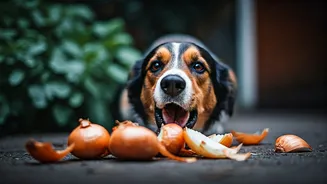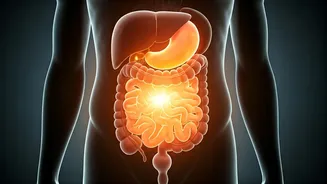Alcohol and Pets
Alcoholic beverages and foods containing alcohol pose a serious threat to pets. Even small amounts of alcohol can cause significant harm. Ingestion can lead
to various problems, including vomiting, diarrhea, decreased coordination, central nervous system depression, difficulty breathing, tremors, and even death. The smaller the pet, the more severe the effects, so preventing access is crucial. Keep alcoholic drinks and foods with alcohol securely stored and out of reach to safeguard your animal companion from these potential dangers.
Coffee, Tea, Caffeine
Caffeine, present in coffee, tea, and other sources, is another substance hazardous to pets. These substances can cause restlessness, hyperactivity, vomiting, increased heart rate, elevated blood pressure, tremors, seizures, and death. Symptoms and severity depend on the amount ingested and the pet's size. It's essential to prevent your pets from accessing coffee grounds, tea bags, and caffeinated beverages or foods. Always secure these items to ensure your pet's safety and well-being.
Macadamia Nuts Risks
Macadamia nuts can be dangerous for dogs and cats. Consumption can lead to several symptoms, including weakness, tremors, vomiting, and increased body temperature. The specific toxic mechanisms aren't fully understood, but the effects are evident. Keep macadamia nuts, which are often found in cookies or mixed nuts, out of reach. If your pet ingests these nuts, contact your veterinarian immediately. Prompt action can significantly improve the chances of recovery and prevent further complications.
Chocolate's Danger Explained
Chocolate contains theobromine and caffeine, both toxic to pets, with dark and baking chocolate being the most hazardous due to their higher concentration of these substances. Ingestion can lead to vomiting, diarrhea, rapid breathing, increased heart rate, seizures, and even death. The severity of the symptoms correlates to the type and amount of chocolate consumed and the size of the animal. Always store chocolate products securely and away from pets, and seek immediate veterinary attention if you suspect chocolate poisoning.
Grapes and Raisins Caution
Grapes and raisins pose a significant threat to dogs, as they can cause kidney failure. The exact toxic compound is unknown, but even small amounts can be dangerous. Symptoms include vomiting, lethargy, decreased appetite, abdominal pain, and increased thirst and urination. Kidney failure can occur rapidly, leading to severe health complications. Keep grapes and raisins out of your pet's reach, and contact your vet immediately if you think your pet has eaten them.
Avocado's Peril Detailed
Avocados contain persin, a substance toxic to some animals, although the level of toxicity varies. While the flesh of the avocado is often considered safe for humans, large amounts can cause vomiting and diarrhea in dogs and cats. Avocados can also pose a physical hazard if pets ingest the pit, which can cause choking or intestinal blockages. Keep avocados away from pets and consult your veterinarian if you are concerned about your pet's health after they have eaten any amount.
Onions and Garlic Dangers
Onions and garlic, belonging to the allium family, contain compounds that can damage red blood cells, leading to anemia in pets. Both raw and cooked onions and garlic are toxic. Symptoms include weakness, pale gums, rapid breathing, and lethargy. Smaller doses can cause digestive upset. Avoid feeding onions and garlic to your pets in any form, and be cautious about foods that contain these ingredients. If you suspect your pet has consumed onions or garlic, seek veterinary care.

















